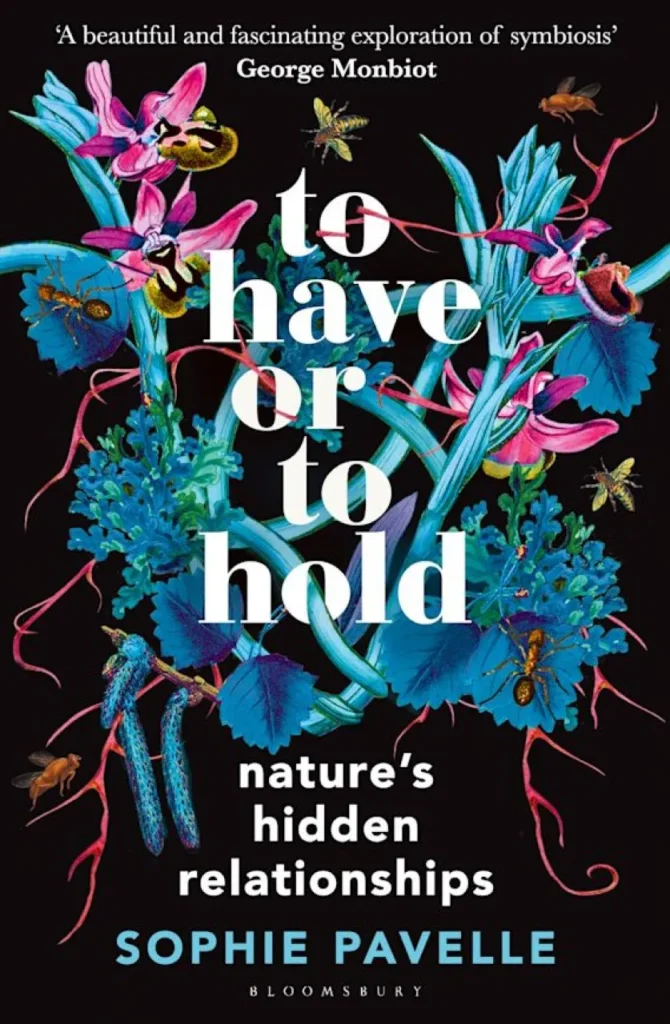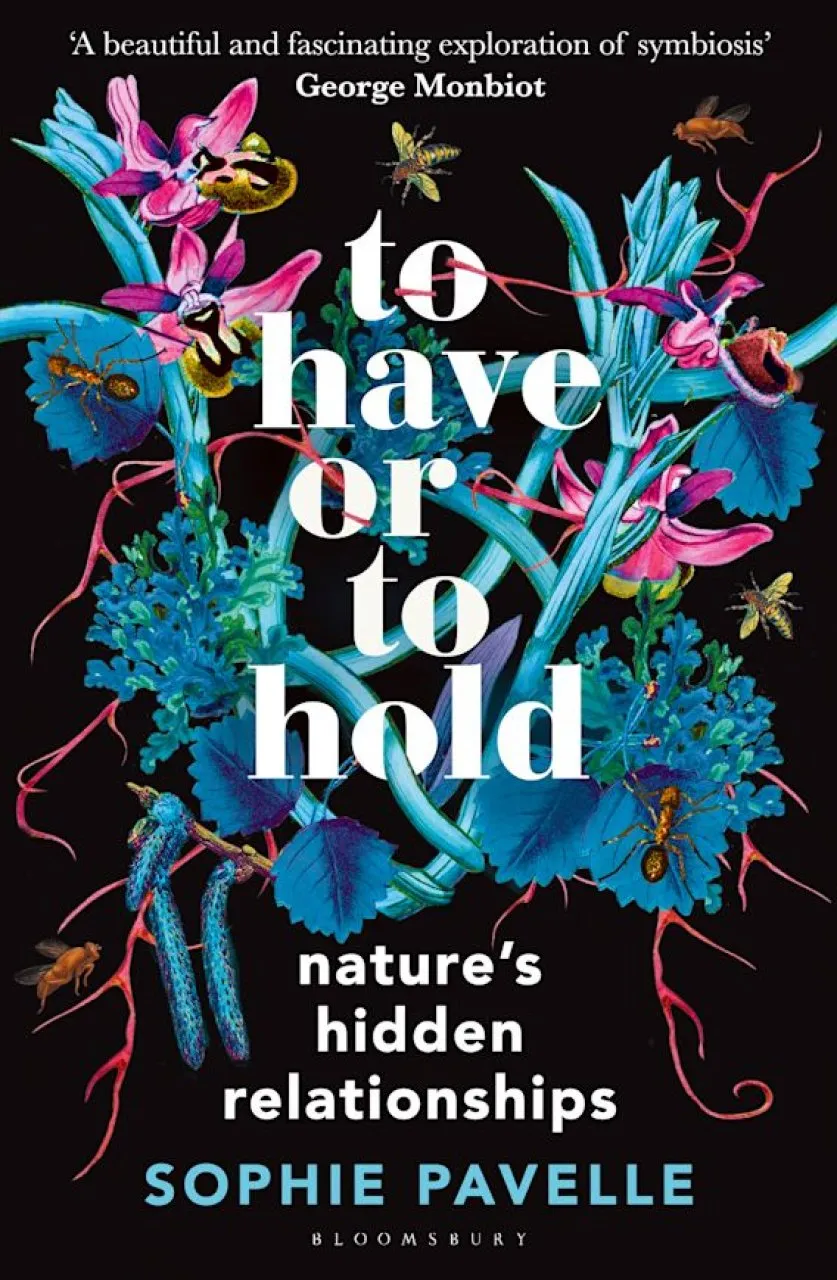Simply put, To Have or To Hold (THOTH) is a book about relationships in nature. But leaving it at that would be doing this complex, thought-provoking, and fiercely written book an injustice, because there is nothing simple about these relations. Sophie Pavelle is not discussing easy to define, easy to find, or easy to understand relationships; she is focusing on the complicated, dramatic, unsettling, and often invasive world of symbiosis. In popular use this term is often accompanied by buzzwords such as mutual or reciprocal, leading us to believe that everyone involved receives an equal share of the benefits. But, by telling the stories of eight parasitic pairings and examining their relationships, how they are faring in the heat of the climate crisis, and what they might teach us about our own complicated connections with the natural world, Sophie shows us that symbiosis is not as simple as it seems.
There is no denying that Sophie has set herself a challenge. Despite over 50% of the world’s biodiversity being made up of species with a symbiotic lifestyle, a lot of these relationships are so complicated and nuanced, and often quite hard to observe, that she openly admits in the prologue she was discouraged by some people from writing this book. But, luckily for us, Sophie rises to the challenge and, with teams of experts pointing her in the right direction, she takes it in her low-carbon stride. Whether she is travelling deep into the Irish rainforest in search of lichens or scanning stretches of Jersey sand at low tide for Mint Sauce Worms, her curiosity is compelling, and you cannot help but feel that you are learning alongside her the whole way.
Even in the situationships that are sometimes hard to look at: the hairworm that invades its host’s brain and manipulates its behaviour, the millions of parasites that settle themselves on a sunfish, or the marine barnacle that alters the sex of its crab host, Sophie has a way of getting you to think differently about the whole thing. Like she says, ‘This journey is not about distinguishing good from evil. Instead, it’s a vibrant, rocky path bursting with surprise switchbacks, steep drops, heart-racing ascents and blissful stretches.’
That quote sums up THOTH as well. It does not shy away from the violence and cruelty found in nature. Instead, it embraces it. Sophie studies it closely enough to find beauty in the brutality of it all. If this book and her first book, Forget Me Not, were siblings, then THOTH is the older sister going through her goth phase. The writing is rich and evocative with storms whipping across the pages, and landscapes captured with precise turns of phrase. And there is also a haunting, almost brooding, quality as the prose ponders at bigger picture thinking; asking you to experience the complexity of life surrounding us and find awe in the idea of ‘… the planet as one holistic, living, breathing, system.’
Despite the heaviness of the topic, and some very science-driven sections, it never lacks Sophie’s signature lightness of touch, or her humour, those essentials that keep us turning the page to find out what happens next. For me, THOTH is a masterclass in both science communication and story-telling – I mean, anyone that can keep me enthralled at the idea of a hairworm invading its host’s brain in order to drown it, knows exactly what they are doing when it comes to nature writing.
This is a book that I have thought about a lot since I finished reading it. I find myself musing on Mint Sauce Worms more often than I ever thought I would, and my mind now drifts around wondering how the Buffish Mining-bee and the Early Spider Orchid are getting on. I also read it as a plea to look beyond what we think we know, and to try to understand, or at least acknowledge, the nuances in the natural world – and perhaps also to think a little more deeply about how we fit into all of it. What exactly is our role within our relationship with planet earth and is there a better way to approach this symbiotic relationship in which we are unavoidably engaged? Is there a way to be a better parasite?


